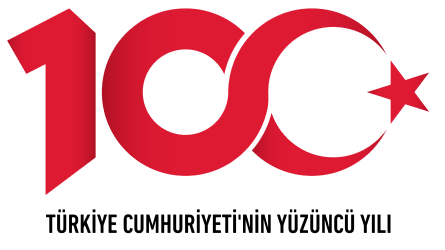| Faculty Coordinator | : Prof. Dr. Pınar YERLİKAYA KEBAPÇIOĞLU |
| : pyerlikaya @ akdeniz.edu.tr | |
| Phone | : +90 242 310 60 89 |
| Fax | : +90 242 226 20 13 |
CLICK HERE FOR THE LIST OF BILATERAL AGREEMENTS MADE WITHIN THE ERASMUS PROGRAM
WHAT IS THE ERASMUS PROGRAM?
The ERASMUS Program is a European Union program that encourages cooperation between higher education institutions by providing financial support for the creation and implementation of joint projects and short-term student and staff exchanges. It is one of the sub-programs of the Lifelong Learning Program, which is part of the European Union’s Education and Youth Programs.
What is the Purpose of the Program?
The aim of the program is to improve the quality of higher education in Europe and strengthen the European dimension. This goal can be summarized as making good practices in different countries of Europe available to the whole of Europe. The ERASMUS program aims to achieve these objectives by promoting inter-university cooperation between countries, facilitating mutual exchange of students and educators in Europe, and contributing to the academic recognition of studies and degrees obtained in participating countries and the development of transparency.
Who Can Benefit from the Program, and How?
The ERASMUS program is open to higher education institutions in the countries that are part of the LLP/Lifelong Learning Program, namely the 27 member countries of the European Union, Iceland, Liechtenstein, Norway (members of the European Economic Area), Croatia (a candidate country for membership in the European Union), and Turkey.
Universities, institutes, academies, and similar institutions recognized as higher education institutions by the relevant official institutions of the countries can benefit from the ERASMUS program by obtaining the ERASMUS University Charter (EUC) through an application to the Directorate-General for Education and Culture of the European Commission. The EUC is valid until the end of the current LLP period. Institutions can apply starting from the date the Commission opens applications, with the deadline being November 1st each year.
The main activities related to students under the ERASMUS program include:
Mobility Activities Student Mobility Study Mobility Internship Mobility Erasmus Intensive Language Courses Intensive Programs Preparation Visits
STUDENT MOBILITY The ERASMUS program implements student exchange in two ways:
- Study Mobility (Student Mobility for Studies) Through Erasmus Student Study Mobility, students enrolled in a higher education institution with an ERASMUS University Charter in Turkey have the opportunity to become exchange students at another European higher education institution with an ERASMUS University Charter for 1 or 2 terms (between 3-12 months) within an academic year and receive financial support for the period they spend abroad through the program.
To see the course list for ERASMUS+ exchange students for the 2017-2018 academic year, click on the links below:
2017-2018 ERASMUS+ UNDERGRADUATE COURSE LIST
2017-2018 ERASMUS+ GRADUATE COURSE LIST
- Internship Mobility - Placement (Student Placement) “Placement” is the process of a beneficiary receiving vocational training and/or work experience within a joint enterprise or organization in another participating country. The placement can last for a minimum of 3 months and a maximum of 12 months. For associate degree programs, this period can be a minimum of 2 weeks.
Erasmus Student and Staff Exchange:
Through the Erasmus student exchange program, students can become students at another European higher education institution with an ERASMUS University Charter for 1 or 2 terms within an academic year, while teaching staff can go abroad to give lectures for a period of 1 week to 6 weeks under the same conditions. The European Commission provides financial support by providing grants to cover the additional expenses incurred by individuals participating in the exchange. As a candidate country for the Union, Turkey’s student and staff exchange is only possible with member countries.
The exchange of students and teaching staff with partner universities is organized within the higher education institution and is carried out through the Erasmus Coordinators (International Relations Offices / EU Offices / External Relations Offices) of the institutions. The European Commission also provides financial support to cover the stationery, equipment, and other expenses of institutions for organizing this exchange.
Son güncelleme : 27.07.2023 13:58:46

